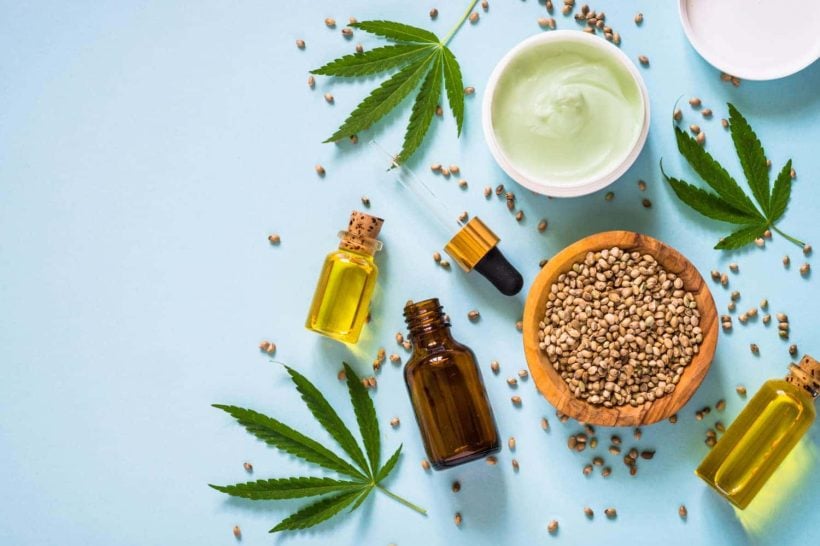Our current definitions of hemp and marijuana distinguish these separate varieties of the Cannabis sativa plant based on THC content. According to the United States government, any cannabis plant that contains under 0.3% THC qualifies as hemp (which is CBD-dominant and cultivated by industrial hemp farmers nationwide for various purposes – especially, in recent years, to support the booming CBD industry). Cannabis plants that contain over 0.3% THC, on the other hand, are defined as marijuana and considered THC-dominant.
In light of a recent study, however, scientists are arguing that these definitions are insufficient to 1) account for the biological complexities that determine the chemical makeup of the mature cannabis plant and, 2) predict whether any given plant, no matter its assigned cannabis variety, will yield THC levels over 0.3%.
This issue is of significant financial consequence for industrial hemp farmers, who are forced to destroy their crop if their plants exceed 0.3% THC at peak maturity – which is not uncommon, despite efforts to monitor cannabinoid content earlier in the growing cycle.
New Hemp Definition Study
The study, published in the American Journal of Botany by researchers at the University of Minnesota, reveals that cannabinoid content is primarily determined by genetic factors. Any Cannabis sativa plant can inherit genes that mutate and alter its cannabinoid content, resulting in unexpectedly high THC levels in plants classified as CBD-dominant hemp. As a result, researchers are now arguing that genetic markers are a more effective means of predicting a plant’s cannabinoid content once it matures.
Using a CBD:THC ratio genotype on three cannabis varieties (feral cannabis or “ditch weed,” industrial hemp, and marijuana), scientists were able to predict and determine whether plants would be CBD-dominant, THC-dominant, or intermediary-type with remarkably consistent results.
In the wake of these findings, scientists are arguing for a new definition of hemp that classifies this variety of Cannabis sativa using genetic markers to measure inherited CBD:THC ratios, presenting a method to predict THC levels that offers heightened security to farmers growing the crop.
Hemp: Predicting THC Content
When researchers set out to develop molecular markers to more accurately predict THC and CBD content, they found that a plant’s cannabinoid content ultimately comes down to certain genetic inheritances. These hereditary factors, above all else, determine whether cannabis varieties will mature into THC-dominant or CBD-dominant plants.
It follows that cannabinoid content can only be accurately predicted by determining a plant’s inherited CBD:THC ratio using genotypes or classifications based on the genetic constitution of each individual cannabis plant. Researchers used this “inheritance model” to test the THC:CBD ratio of all three cannabis varieties, and found that the test was a strikingly accurate predictor of a plant’s ultimate cannabinoid composition:
THC:CBD ratios revealed after genotyping perfectly matched model predictions based on the observed genotypes.
The results of genotyping feral cannabis were particularly impressive in demonstrating the degree to which genetic inheritance can lead to unexpectedly high THC levels. Lead study author George Weiblen notes that there is a 1 in 1000 chance of finding THC-type plants among a field of feral cannabis. Nonetheless, after testing nearly 300 wild cannabis plants, the team found CBD-type, intermediate, and THC-type plants in the same field, despite the fact that the plants descended from hemp grown for fiber during World War II.
Researchers genotyped these THC-dominant plants to understand this rare occurrence, which revealed that the THC-type feral plants descended from plants that had been exposed to pollen containing THC-type genes that had mutated and altered the genetic makeup of several individual plants. These rare findings illustrate that against all odds, genetic inheritance can defy expectations in determining a plant’s final cannabinoid content.
The Future of Hemp
Researchers are ready to put these findings to practical use, noting:
Natural genetic variation affects the composition of phytochemicals [or cannabinoids] in plants and can be of great economic importance.
If this “inheritance model” is accepted, their findings would benefit hemp farmers everywhere by eliminating the financial risks associated with growing the crop. As the Weilen team explains:
We hope this new test can assist in new seed certification for the hemp industry. For hemp to take off in Minnesota and elsewhere, there must be ways to assure growers they won’t have to destroy their crops at the end of the season.
